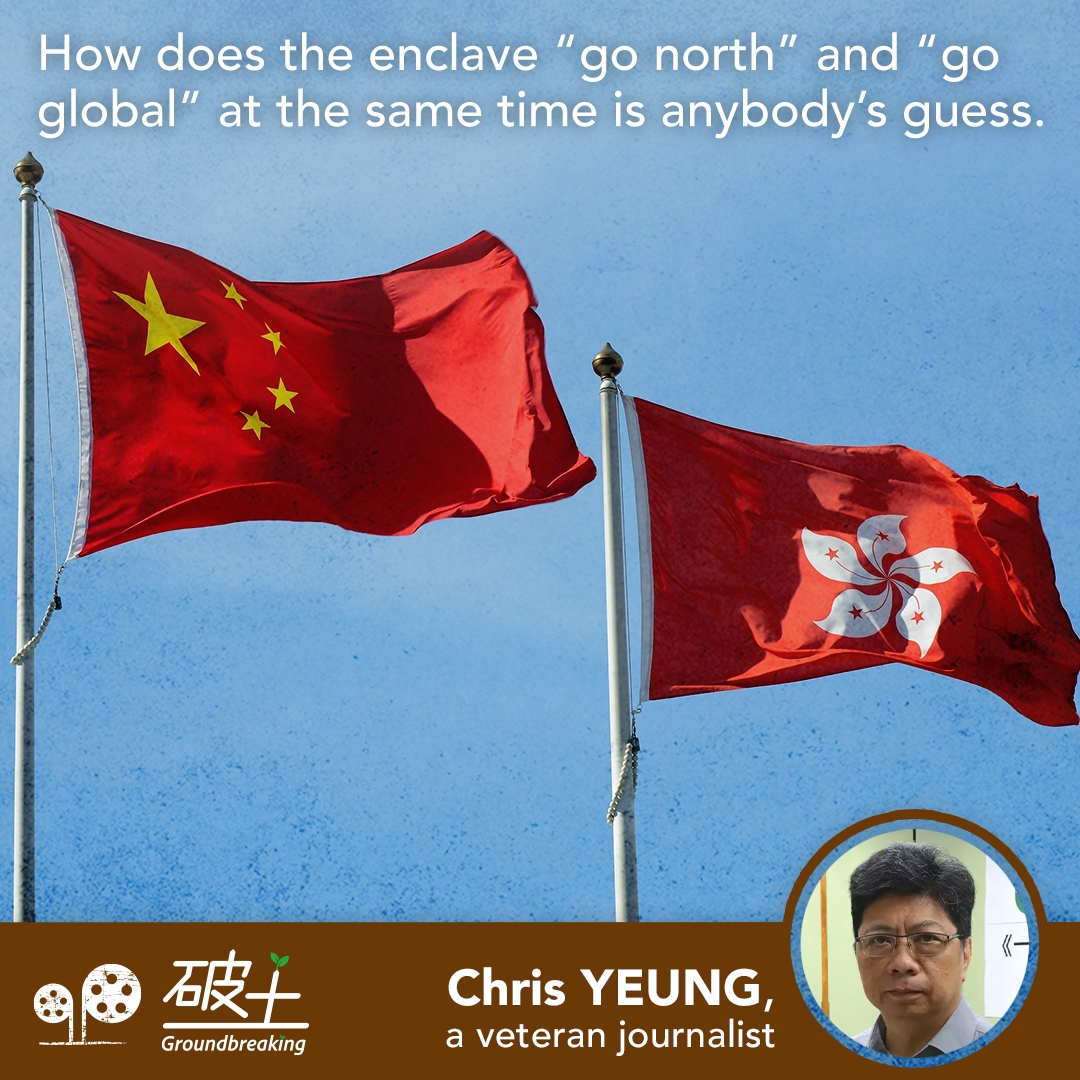Hong Kong going north or global?

Hong Kong has been given a tall order, if not mission impossible, in the plan spearheaded by President Xi Jinping, who was just re-elected for another five-year term, to rejuvenate the Chinese nation.
Task One: The former British colony should fully integrate with the nation.
Task Two: It should embrace the international community.
How does the enclave “go north” and “go global” at the same time is anybody’s guess.
Contradictory it may seem to be, Hong Kong has thrived on its unique role connecting mainland China and the world for many decades.
And for a long period of time after the 1997 changeover, the city has been able to maintain its unique role and functions. Put simply, it is part of China, but also not part of China. The Hong Kong SAR has been allowed to keep its own systems intact for at least until 2047. Call it “one country, two systems”.
An example is international sports. Hong Kong athletes can participate in international sports events under the name of Hong Kong SAR, but not part of the Chinese national team.
Aside from a real borderline separating the city and the neighboring Shenzhen, Hong Kong has kept its own identity different from the other parts of the mainland.
The unique role and function of Hong Kong has emerged as a vital factor behind the city’s success and the nation’s open door and reform drive launched by Deng Xiaoping in the late 1970s.
Once widely hailed as a win-win formula for both Hong Kong and the nation, the city’s role is increasingly mired in uncertainty in the wake of the profound changes unfolded in the past decade.
The line separating Hong Kong and the mainland is fast becoming blurred with the pace of cross-border integration accelerating and the scope of it broadening. Adding more irony to the changes is the recent rhetoric of Beijing leaders about the importance of Hong Kong in keeping its international ties.
The conflicting messages have featured markedly in the just-concluded “two sessions,” or the national plenum of the Chinese National People’s Congress and the Chinese People’s Political Consultative Conference.
Xi underscored the importance of self-reliance in technological development amid tensions with the United States at the “two sessions.”
In his speech delivered in Hong Kong on July 1, Xi has highlighted Hong Kong’s “distinctive status and edges” in the international arena.
He said: “The central government fully supports Hong Kong in its effort to maintain its distinctive status and edges, to improve its presence as an international financial, shipping, and trading center, to keep its business environment free, open, and regulated, and to maintain the common law, so as to expand and facilitate its exchanges with the world.”
Xi’s specific reference to Hong Kong’s international connection and common law in his July 1 speech has been widely cited by the city’s pro-China figures to illustrate the city’s role in the nation’s rejuvenation drive.
At a meeting with Hong Kong delegates during the “two sessions”, the new director of the central government’s Liaison Office Zheng Yanxiong has reportedly said Hong Kong should continue to pursue the path of internationalisation.
How Hong Kong continues to develop its international ties remains to be seen. But the ongoing process of integration with the mainland started speeding up as soon as the two sessions were concluded.
Accompanied by eight ministers, Chief Executive John Lee began a round of meetings with officials in the central government after the NPC closing, which resulted in new collaboration agreements sealed and new initiatives explored.
Speaking at a meeting with Lee on last Wednesday (15/3), China’s science and technology minister has pledged to support Hong Kong in joining more national-level projects and in its efforts to entice global talent.
To speed up the city’s development as an innovation and technology hub to what minister Wang Zhigang termed a “globally competitive” level, the central and Hong Kong governments signed a new arrangement to promote talent flow, the sharing of resources and the transfer of technologies, as well as strengthening a coordination mechanism.
Wang told Lee the city should “make better contributions” to the country’s pursuit of technological self-reliance.
For Hong Kong to “make better contributions,” keeping its unique status and international ties are vitally important for it to have access to advanced technology and knowhow.
Ironically, full integration with the mainland may create more doubts about the “one country, two systems” policy. Doubts will grow deeper when there is more anecdotal evidence of the city becoming less international and more “mainlandised.”
True, Lee has paid various overseas visits to “put Hong Kong back onto the international stage” in the past few months following the easing of the Covid-19 jitters. The choice of destinations in his “Hello Hong Kong” tours shows a marked shift of focus from the United States and Europe to Southeast Asia and the Middle East.
With tensions between China and the US lingering, Hong Kong will not possibly be able to stay aloof from the rivalry of the two giants. More likely, it will be dragged deeper into the political quagmire as it integrates further and wider with the mainland.
How to redefine the role and functions of Hong Kong in view of the drastic changes in the mainland and China’s relationship with Western countries is becoming more complex. Sloganeering will not help. A return to the basics of Hong Kong’s unique role and function will help.
▌[At Large] About the Author
Chris Yeung is a veteran journalist, a founder and chief writer of the now-disbanded CitizenNews; he now runs a daily news commentary channel on Youtube. He had formerly worked with the South China Morning Post and the Hong Kong Economic Journal.